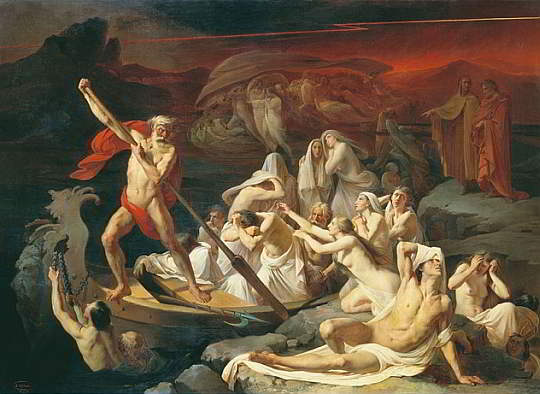Greek Orthodox Community of Melbourne and Victoria
Event

- Title:
- Open Lecture: Why Did the Ancient Greeks have a Love-Hate Relationship with their Myths?
- When:
- 03.04.2014 19.00 h
- Where:
- The Ithacan Philanthropic Society - Melbourne
- Category:
- Education
Description
Lecturer: Dr Christopher Gribbin
Entry: Free
Synopsis
Myths were extremely important to the ancient Greeks and pervaded many aspects of their society. The ancient Greeks used their myths in decorating their pottery and buildings, as a basis for their poetry and as an important part of their religion. Myths contained cultural wisdom and acted as a source of inspiration. But the myths also tell stories of the gods committing incest, theft and murder, and some Greeks found that unsettling. This talk explores the Greeks' love-hate relationship with their myths in an attempt to understand how it came about and how some people tried to fix the problem.
Biography
Dr Christopher Gribbin is a fellow at the University of Melbourne's School of Historical and Philosophical Studies, where he runs the Classics Summer School for the public each January. He has also taught at Monash and La Trobe Universities. He completed a Ph.D. at the University of Melbourne in 2001 looking at the interaction between religion and philosophy in the sixth century B.C. He has a particular interest in ancient myth, religion and philosophy, and their value for today. You can find out more about Christopher's activities through http://shaps.unimelb.edu.au/classics archaeology/summer-school or @ClassicsMelb.
Sponsors
We would like to thank Olyvia Nikou QC for sponsoring this lecture.
Such initiatives assist us in providing these lectures free to the public. If you would like to participate as sponsor from as little as $100 please send us an email: This e-mail address is being protected from spambots. You need JavaScript enabled to view it
Venue
- Venue:
- The Ithacan Philanthropic Society - Website
- Street:
- Level 2, 329 Elizabeth Street
- Postcode:
- 3000
- Suburb:
- Melbourne
- State:
- VIC
- Country:
-

In October 1916, the Ithacan migrants of Melbourne established the ITHACAN PHILANTHROPIC SOCIETY "The Ulysses", with an inaugural membership of some 153 members. This was in response to pleas for aid from their loved ones in Ithaca who were suffering deprivation during the First World War.
Over the years, however, the Society has been much more than just a philanthropic institution. It has been a constant in the lives of the early Ithacan migrants replacing the homeland which they had left.
The Society takes an active role in the cultural, social, educational and quality of life interests of the Ithacan Community. The Society, as part of its philanthropic role, also makes many monetary contributions to worthy causes, including those outside the immediate Ithacan community. The Society celebrated its 90th Anniversary in 2006.
EventList powered by schlu.net

